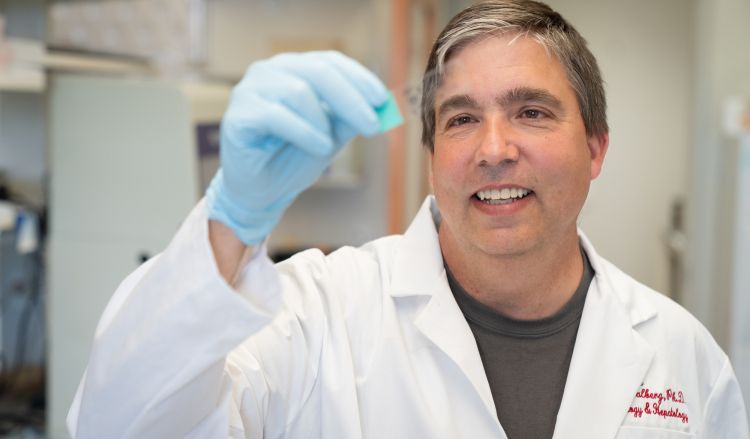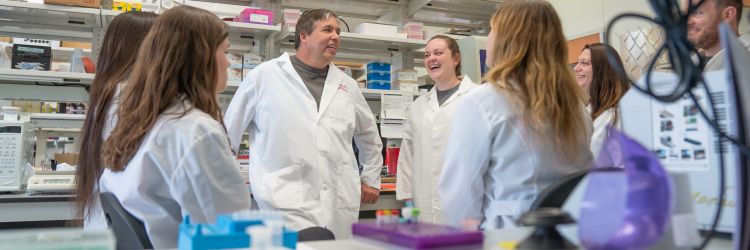Retirement honor: Rich Halberg, PhD

The Department of Medicine (DOM) is proud to honor Rich Halberg, PhD, professor, Gastroenterology and Hepatology, who will retire on July 13, 2025.
Dr. Halberg completed a PhD in biochemistry at Michigan State University, followed by a postdoctoral fellowship in molecular genetics at the University of Wisconsin–Madison.
He joined the DOM faculty in 2009.
Find out more about Dr. Halberg in the Q&A below.
What do you consider your most significant accomplishments during your time in the department?
My research over the past 30 years has elucidated molecular mechanisms that drive normal biological processes and disease states. Much of this effort has focused on the origin of tumors in the mammalian gut. My group demonstrated that many tumors are derived from multiple progenitors, disproving a longstanding paradigm in the field of cancer biology. An initial progenitor facilitates the neoplastic transformation of one or more neighboring progenitors to form a complex multi-ancestral tumor consisting of several molecularly distinct cancerous clones. This recruitment process is only beginning to be understood. Interactions among clones in a multi-ancestral tumor have a profound impact on all aspects of cancer biology, even the response to targeted therapies.
Beyond my research at the UW, I have taught and co-directed a workshop at the Jackson Laboratory in Bar Harbor, Maine that teaches trainees how to effectively use mouse models of human cancer for the last 25 years. More than 300 trainees from the United States and around the world have participated in this workshop.
What have been the most personally gratifying aspects of your work?
The most gratifying aspect of my work has been helping students and trainees to “live the life that they dreamed for themselves.” I have mentored numerous junior faculty, three postdoctoral fellows, seven graduate students and over 30 undergraduates.
I am also very proud of the work that I did as Director of the Biomedical Research Model Services (BRMS). This program supports more than 300 UW investigators providing care for research animals in 11 vivaria across the UW campus and technological expertise ranging from blood collection to microsurgery.
Any particularly fond memories?
At the end of my last lecture in each course that I teach, I close with the Ralph Waldo Emerson quote, “Live the life that you have dreamed for yourself,” and tell them of my own career journey which was filled with success and failure. The responses from the students is overwhelming with some even reaching out years later after they graduate from PhD programs or medical school to say “thank you” for inspiring them.
What are you looking forward to in retirement?
My wife and I are fortunate to live on Lake Kegonsa, believing wholeheartedly if you are lucky enough to live on a lake, then you are lucky enough. We hope to set up a charity in which families with a child with cancer or special needs can come for a week to share the serenity of the lake.
